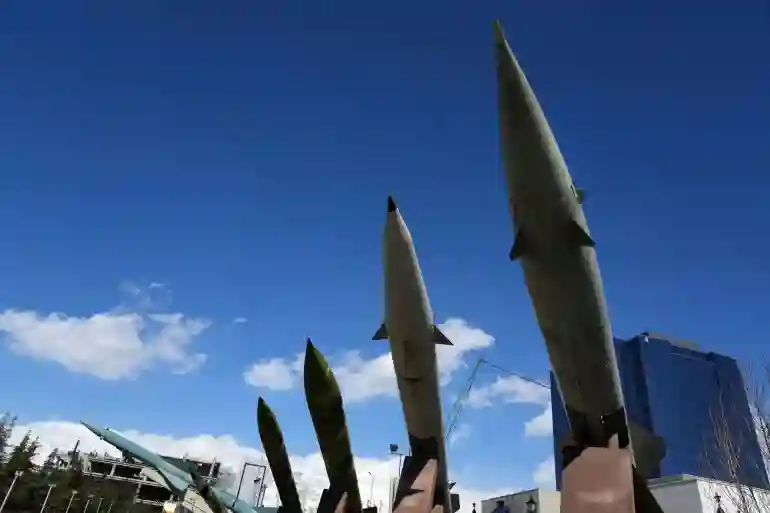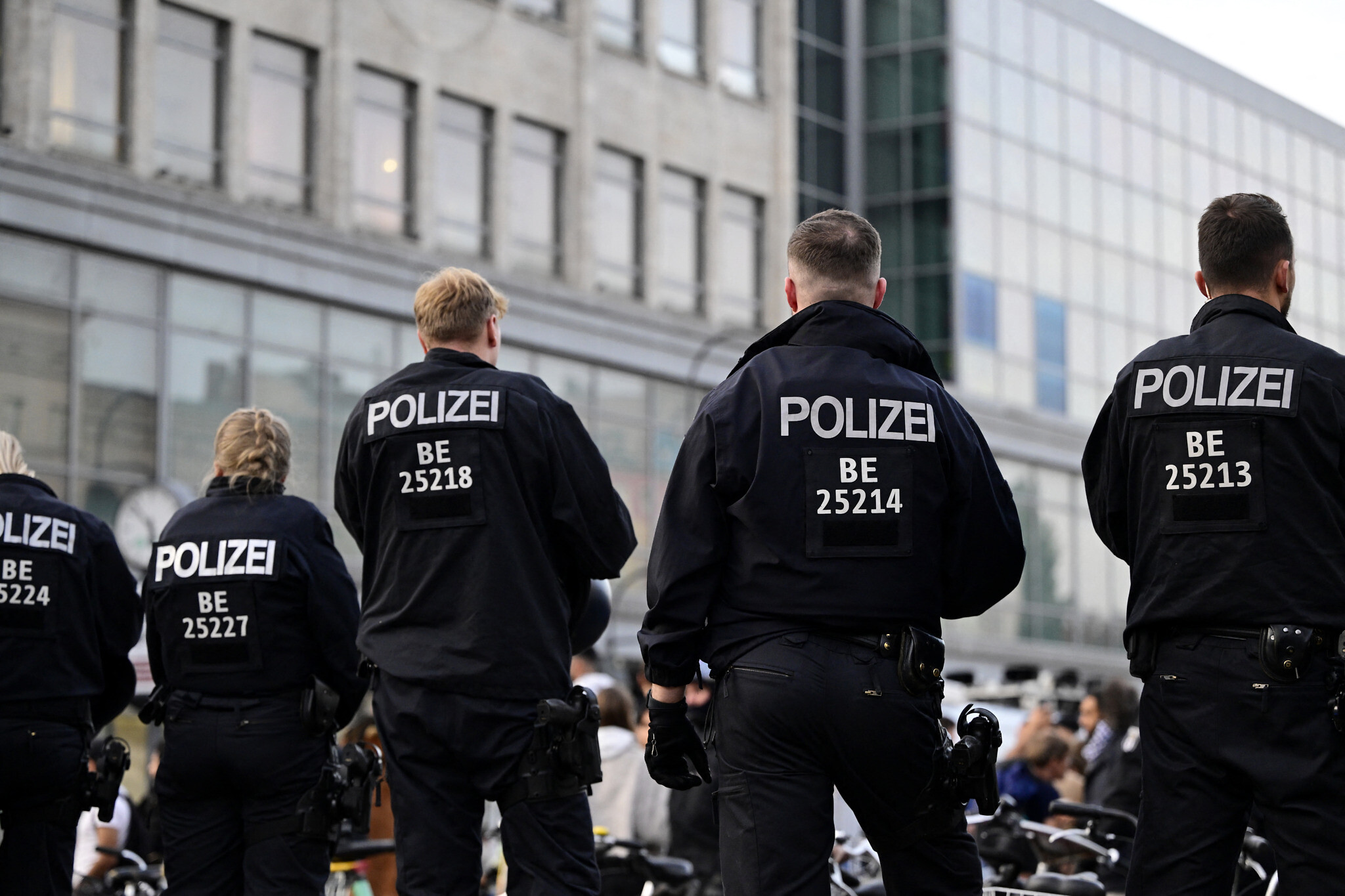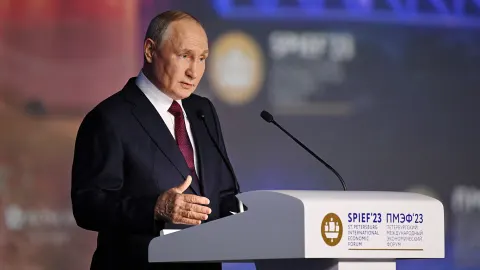Foreign
Fattah: Iran Unveils Its First Hypersonic Missile

Iran has unveiled its first-ever hypersonic missile, Fattah, which it says can penetrate missile defence systems and will give it a military edge.
State media on Tuesday published images of an unveiling ceremony, attended by President Ebrahim Raisi and senior commanders of the Islamic Revolutionary Guard Corps (IRGC), with the domestically made black missile visible.
State media said the missile can move at a speed of up to Mach 15 (5,145 metres or 16,880 feet per second), has a range of 1,400km (870 miles) and features a moveable secondary nozzle and employs solid propellants that allow for high manoeuvrability.
Supreme Leader Ayatollah Ali Khamenei has chosen the name, they said, which roughly translates to “the opener”.
Hypersonic missiles move at five times the speed of sound or greater and are manoeuvrable, making them difficult for defence systems and radars to target.
The United States, Russia, China and North Korea are believed to be the only countries to have successfully tested hypersonic missiles, but exact details of the weaponry remain scant.
IRGC aerospace chief Amir Ali Hajizadeh announced news of the development of the hypersonic missile last November at an event marking the anniversary of the death of Hassan Tehrani Moghaddam, known as the father of Iranian missile technology.
Moghaddam died after an explosion at a missile base in 2011, which also killed more than a dozen other IRGC members. The explosion was reported as an accident, but some Western media reported that Israel was behind it.
In November, Hajizadeh said the new missile represents a “generational leap” for Iranian missile technology as it can manoeuvre within and outside the earth’s atmosphere and penetrate any missile defence system.
“The Fattah cannot be destroyed by any other missile due to how it moves in different directions and at different altitudes,” he was quoted as saying on Tuesday.
The West and Israel have repeatedly expressed concern over Iran’s missile programme, saying the country’s ballistic missiles could potentially be used to carry nuclear warheads – something Tehran denies pursuing.
The IRGC last month successfully tested a new ballistic missile with a range of 2,000km (1,240 miles) that earned more criticism from the West, with France claiming it violated the United Nations resolution that underpins the comatose 2015 nuclear deal with world powers.
Foreign
3 teens arrested in Germany for allegedly plotting terror attack

German authorities have arrested three teenagers aged 15 and 16 on suspicion of plotting a deadly Islamist terrorist attack in the western German state of North Rhine-Westphalia, prosecutors said on Friday.
The state’s Central Office for the Prosecution of Terrorism (ZenTer NRW) sought an arrest warrant for the teenagers over the Easter holiday.
They were suspected of plotting a terrorist attack in accordance with the aims and ideology of (extremist militia organisation) Islamic State.
The detained suspects are a 15-year-old girl from Dusseldorf, a 16-year-old girl from the Märkischer Kreis district and a 15-year-old boy from the Soest district, located about 100 kilometres to the east of Dusseldorf.
A fourth suspect has reportedly been identified in the south-western German state of Baden-Württemberg, and the local court there has issued an arrest warrant.
According to the investigators, the teenagers are accused of having agreed to commit murder and manslaughter.
This is in conjunction with the preparation of a serious act of violence endangering the state.
The presumption of innocence applied in all stages of the proceedings.
Security sources told newsmen that the young people had formed a chat group, but had not drawn up a concrete attack plan for a particular time and place.
However, sources said the cities of Dortmund, Dusseldorf and Cologne were discussed as targets, and attacks with knives and Molotov cocktails on people in churches or police officers in police stations had been considered.
The sources said authorities had also conducted searches as part of the investigation.
A machete and a dagger were seized in Dusseldorf, but no evidence of the construction of incendiary devices was discovered.
Sources said the father of the Dusseldorf suspect had already attracted attention from authorities in the past because he had allegedly collected donations for the Islamic State.
The investigators declined to reveal how the suspected terrorists were tracked down, but said that foreign intelligence agencies “did not play a role.”
Foreign
Putin Registers As Candidate For Russia’s Next Presidential Election

Russia on Monday officially recognised Vladimir Putin as a candidate for the presidential elections in March, a vote that he is all but certain to win.
The 71-year-old has led Russia since the turn of the century, winning four presidential ballots and briefly serving as prime minister in a system where opposition has become virtually non-existent.
The Central Election Commission said it had registered Putin, who nominated himself, as well as right-wing firebrand and Putin-loyalist Leonid Slutsky as candidates for the vote.
The election will be held over a three-day period from March 15 to 17, a move that Kremlin critics have argued makes guaranteeing transparency more difficult.
Following a controversial constitutional reform in 2020, Putin could stay in power until at least 2036.
Rights groups say that previous elections have been marred by irregularities and that independent observers are likely to be barred from monitoring the vote.
While Putin is not expected to face any real competition, liberal challenger Boris Nadezhdin has passed the threshold of signatures to be registered as a candidate.
However, it is still unclear if he will be allowed to run, and the Kremlin has said it does not consider him to be a serious rival.


















